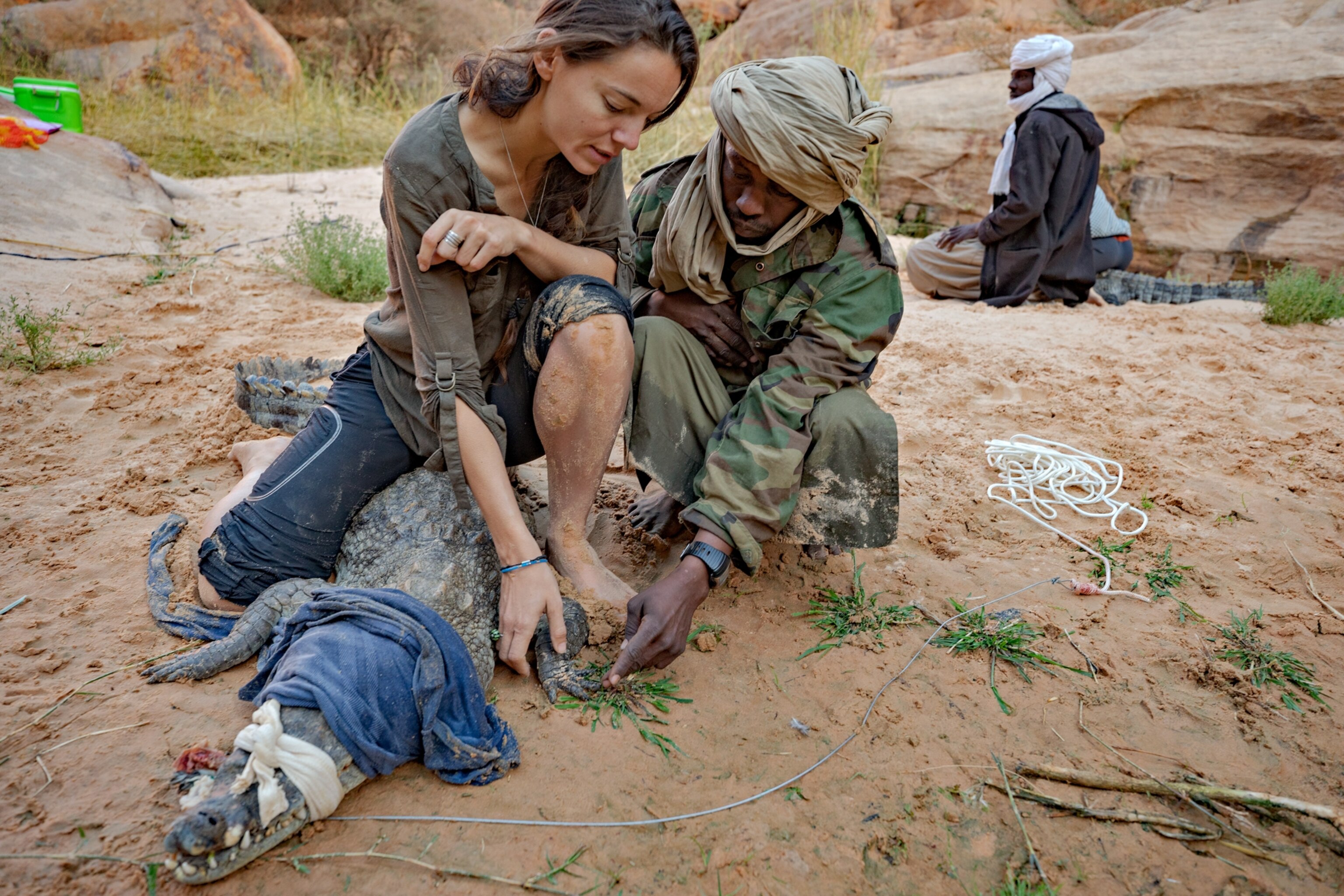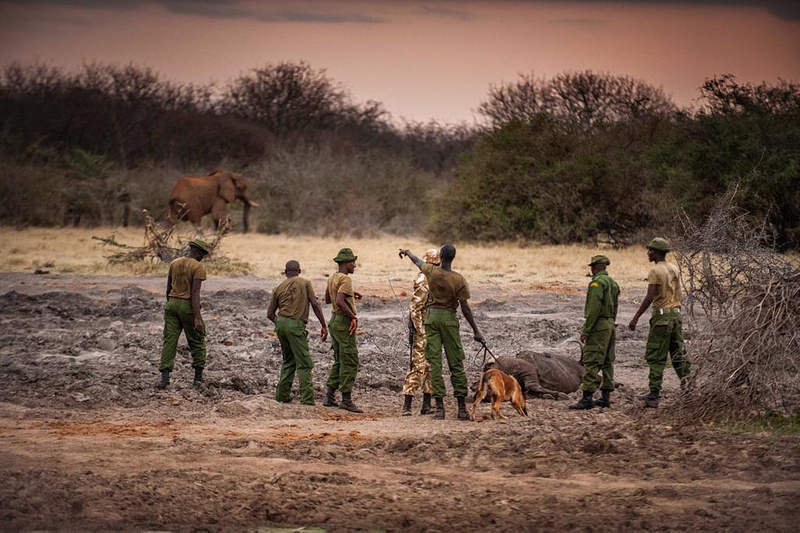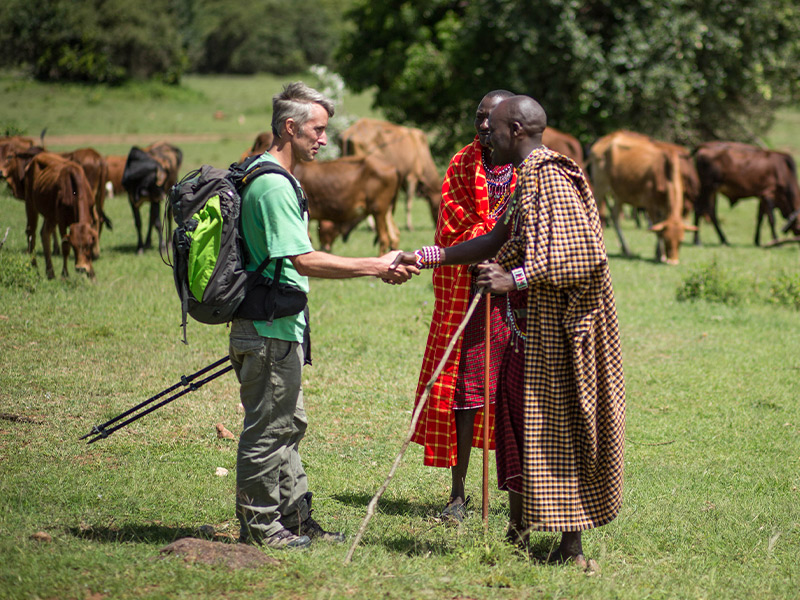Africa is home to some of the most diverse and iconic wildlife species on the planet, from majestic elephants and rhinos to playful primates and colorful birds. However, many of these species are facing serious threats due to habitat loss, poaching, and human-wildlife conflict. Conservation efforts in Africa are crucial to protecting these species and ensuring their survival for future generations.
As individuals, we can also make a difference by supporting conservation efforts through various means. We can choose to visit eco-friendly tourism destinations that promote conservation practices, donate to reputable wildlife conservation organizations, and educate ourselves and others about the threats facing African wildlife. Additionally, we can make sustainable choices in our everyday lives to reduce our impact on the environment and help protect wildlife habitats.
By coming together and taking action, we can all play a part in preserving Africa's incredible wildlife for future generations to enjoy. Let's work together to ensure a brighter and more sustainable future for the wildlife of Africa.
There are many ways that individuals can contribute to wildlife conservation efforts in Africa, no matter where you are in the world. Here are some practical steps you can take to make a difference:
Support Conservation Organizations

Supporting conservation organizations can have a significant impact on wildlife conservation efforts in Africa. Africa is home to a diverse array of wildlife species, many of which are facing threats from habitat loss, poaching, climate change, and human-wildlife conflict. Conservation organizations play a crucial role in protecting and preserving these species and ecosystems for future generations.
One way in which supporting conservation organizations can help is by providing much-needed funding for conservation projects. These organizations often work on the ground in Africa, partnering with local communities, government agencies, and other stakeholders to implement conservation programs that address the root causes of wildlife decline. Funds raised through donations and grants can be used to support anti-poaching patrols, habitat restoration initiatives, community education programs, and scientific research efforts, among other activities.
In addition to financial support, conservation organizations also rely on public awareness and advocacy to raise the profile of wildlife conservation issues in Africa. By spreading awareness about the importance of protecting endangered species and ecosystems, these organizations can mobilize public support for conservation efforts and drive policy change at local, national, and international levels. Through campaigns, outreach events, social media, and other communication channels, conservation organizations can engage with a global audience and encourage people to take action to support wildlife conservation in Africa.
Furthermore, supporting conservation organizations can help build capacity and strengthen local conservation efforts in Africa. Many conservation organizations work hand-in-hand with local communities, providing training and resources to empower them to take an active role in protecting their natural heritage. By supporting these organizations, individuals and businesses can contribute to the development of sustainable conservation solutions that benefit both wildlife and people in Africa. This grassroots approach to conservation can lead to long-term success by fostering community ownership and stewardship of natural resources.
Ultimately, supporting conservation organizations is a tangible way for individuals, businesses, and governments to make a difference in preserving Africa's rich biodiversity. By investing in conservation efforts, we can help safeguard the future of iconic species such as elephants, lions, rhinos, and gorillas, as well as protect the habitats and ecosystems that sustain them. Together, we can work to ensure that future generations can continue to marvel at Africa's wildlife in the wild and appreciate the beauty and wonder of the natural world.
Responsible Travel

Responsible travel plays a crucial role in wildlife conservation efforts in Africa by promoting sustainable tourism practices that minimize negative impacts on the environment and wildlife while supporting local communities and conservation initiatives. When travelers engage in responsible tourism practices, they contribute to the protection of Africa's diverse wildlife and habitats, helping to ensure their long-term survival.
One of the key ways responsible travel can support wildlife conservation in Africa is by raising awareness about the importance of protecting wildlife and their habitats. By interacting with local communities, learning about conservation efforts, and observing wildlife in their natural habitats, travelers can develop a deeper appreciation for the unique biodiversity of Africa and the need to conserve it for future generations.
Additionally, responsible travelers can support conservation efforts financially by visiting national parks and protected areas where entrance fees and tourism revenue directly contribute to wildlife conservation programs. By choosing eco-friendly accommodations and tour operators that prioritize sustainability and conservation, travelers can ensure that their tourism dollars are supporting initiatives that benefit wildlife and local communities.
Furthermore, responsible travel promotes ethical wildlife viewing practices that prioritize the well-being of animals over entertainment or profit. By choosing reputable tour operators and lodges that adhere to responsible wildlife viewing guidelines, travelers can help reduce the negative impacts of tourism on wildlife, such as habitat destruction, disturbance, and exploitation.
By engaging in responsible travel practices, travelers can also support community-based conservation initiatives that empower local communities to become stewards of their natural resources. By purchasing locally made products, supporting community-led ecotourism projects, and participating in cultural exchanges with indigenous communities, travelers can help create economic opportunities that incentivize conservation and promote the sustainable use of natural resources.
Overall, responsible travel is a powerful tool for promoting wildlife conservation in Africa by fostering a culture of respect for nature, supporting local communities, and generating financial resources for conservation efforts. By choosing to travel responsibly, individuals can make a positive impact on wildlife conservation in Africa and contribute to the long-term sustainability of the continent's iconic wildlife species.
Educate Yourself and Others

Wildlife conservation in Africa is a critical issue that requires active participation and awareness from individuals. Education plays a crucial role in ensuring the preservation of wildlife and their natural habitats for future generations. By educating yourself and others about the importance of wildlife conservation, you can contribute to efforts aimed at protecting Africa's rich biodiversity.
One of the key benefits of educating yourself and others about wildlife conservation is raising awareness about the threats facing wildlife in Africa. Poaching, habitat destruction, climate change, and human-wildlife conflict are just some of the challenges that wildlife in Africa face today. By understanding these issues and their implications, individuals can become more informed advocates for wildlife conservation.
Education also helps in promoting sustainable practices that can minimize the negative impact of human activities on wildlife and their habitats. Through education, individuals can learn about the importance of sustainable development, responsible tourism, and conservation practices that aim to protect biodiversity while also meeting the needs of local communities.
Furthermore, educating yourself and others about wildlife conservation can help foster a sense of stewardship and responsibility towards the natural world. By learning about the interconnectedness of ecosystems and the importance of preserving biodiversity, individuals can develop a deeper appreciation for wildlife and the environment. This, in turn, can lead to a greater commitment to taking actions that support wildlife conservation efforts.
In addition, education plays a crucial role in building capacity and empowering local communities to actively participate in wildlife conservation initiatives. By providing training and educational resources to community members, conservation organizations can help promote sustainable livelihoods that are in harmony with nature. This can create opportunities for local communities to become key partners in conservation efforts, leading to more effective and sustainable outcomes.
Overall, educating yourself and others about wildlife conservation in Africa is essential for fostering a culture of conservation and sustainability. By raising awareness, promoting sustainable practices, fostering stewardship, and empowering local communities, education can play a key role in ensuring the long-term protection of Africa's wildlife and natural habitats. So let us all commit to educating ourselves and others about the importance of wildlife conservation in Africa and work together to safeguard the future of our planet's precious biodiversity.
Reduce Your Environmental Footprint

Climate change and habitat destruction are threatening wildlife populations across Africa, leading to declines in species diversity and habitat loss. As human activities continue to impact the environment, it is crucial for individuals and communities to take action to reduce their environmental footprint in order to effectively contribute to wildlife conservation efforts in Africa.
One of the most effective ways to reduce your environmental footprint is by focusing on sustainable practices in your daily life. This includes reducing energy consumption, recycling and minimizing waste, conserving water, and choosing eco-friendly products and services. By adopting these practices, you can help reduce pollution and minimize the negative impact of human activities on the environment, ultimately benefiting wildlife populations in Africa.
Reducing your environmental footprint can also help in preserving natural habitats for wildlife. Deforestation, habitat fragmentation, and land conversion for agriculture and development have contributed to the loss of critical habitats for many species in Africa. By adopting sustainable land use practices and supporting conservation initiatives that protect and restore natural habitats, individuals can make a significant difference in safeguarding wildlife and their ecosystems.
Furthermore, reducing your environmental footprint can contribute to mitigating climate change, which is a major threat to wildlife populations in Africa. Rising temperatures, changing precipitation patterns, and extreme weather events associated with climate change can disrupt ecosystems and impact the survival of many species. By reducing greenhouse gas emissions through energy efficiency, sustainable transportation, and supporting renewable energy sources, individuals can help mitigate climate change and protect wildlife and their habitats.
In addition, reducing your environmental footprint can also promote sustainable tourism practices that support wildlife conservation efforts in Africa. Responsible tourism practices, such as respecting wildlife habitats, supporting local communities, and minimizing your environmental impact while traveling, can help minimize the negative effects of tourism on wildlife and their habitats. By promoting sustainable tourism, individuals can contribute to the conservation of wildlife in Africa while also supporting local economies and communities.
Overall, reducing your environmental footprint can play a significant role in wildlife conservation efforts in Africa by promoting sustainable practices that protect natural habitats, mitigate climate change, and support conservation initiatives. By taking action to minimize your impact on the environment, you can help ensure a sustainable future for wildlife populations in Africa and contribute to the preservation of biodiversity for generations to come.
Support Anti-Poaching Efforts

Supporting anti-poaching efforts is crucial for wildlife conservation in Africa for several important reasons. Poaching, the illegal hunting or capturing of wild animals, has had devastating effects on the continent's biodiversity and ecosystems. Many species, including iconic animals like elephants, rhinos, and big cats, are targeted by poachers for their valuable ivory, horns, and skins. The relentless killing of these animals not only threatens their populations but also disrupts the delicate balance of their habitats, leading to cascading effects on other species and the environment as a whole.
By supporting anti-poaching efforts, we can help protect these vulnerable species from extinction and preserve the unique biodiversity of Africa. Anti-poaching initiatives, such as wildlife patrols, community engagement programs, and law enforcement collaboration, play a critical role in combating poaching activities and deterring would-be poachers. These efforts help to reduce the illegal wildlife trade, disrupt poaching networks, and enforce laws that protect endangered species.
Moreover, supporting anti-poaching efforts can also benefit local communities and economies in Africa. Many wildlife conservation projects employ and train local people as wildlife rangers, providing them with stable employment opportunities and empowering them to protect their natural heritage. By engaging local communities in conservation initiatives, anti-poaching efforts can foster a sense of ownership and pride in preserving their wildlife and habitats, ultimately leading to long-term sustainable conservation outcomes.
In addition, tackling poaching can have broader implications for ecosystems and biodiversity conservation. Many keystone species, such as elephants and rhinos, play crucial roles in maintaining ecosystem health and function. For example, elephants are known as "ecosystem engineers" because they create and maintain habitats for other species by shaping the landscape through their foraging and browsing behaviors. By protecting these keystone species from poaching, we can help safeguard entire ecosystems and the services they provide, such as carbon sequestration, water filtration, and soil fertility.
Furthermore, supporting anti-poaching efforts can contribute to the global fight against wildlife trafficking and illicit trade. The illegal wildlife trade is a multi-billion dollar industry that fuels organized crime, corruption, and instability in many regions around the world. By disrupting the supply chain of illegal wildlife products, we can help weaken criminal networks, reduce the demand for unsustainable wildlife products, and promote ethical and legal alternatives.
In conclusion, supporting anti-poaching efforts is essential for wildlife conservation in Africa and beyond. By taking a stand against poaching, we can protect endangered species, preserve biodiversity, empower local communities, and combat illegal wildlife trafficking. Together, we can make a difference and ensure a future where wildlife thrives in its natural habitats for generations to come.
Get involved locally

Getting involved locally can have a significant impact on wildlife conservation efforts in Africa. Africa is home to a rich diversity of flora and fauna, including iconic species such as elephants, rhinos, lions, and giraffes. However, many of these species are facing threats such as habitat loss, poaching, and human-wildlife conflict. Local communities play a crucial role in wildlife conservation as they often live in close proximity to these species and their habitats.
There are several ways in which getting involved locally can help in wildlife conservation efforts in Africa. One of the most effective ways is through community-based conservation initiatives. By working closely with local communities, conservation organizations can enlist their support in protecting wildlife and their habitats. This can be done through initiatives such as community-led patrols to prevent poaching, promoting sustainable land use practices, and providing alternative livelihoods to reduce dependency on natural resources.
Education and awareness-raising are also important aspects of local involvement in wildlife conservation. By educating local communities about the importance of wildlife and the threats they face, people are more likely to support conservation efforts and take action to protect these species. This can be done through school programs, community workshops, and outreach events that engage people in conservation activities.
Furthermore, local involvement in wildlife conservation can help address issues of human-wildlife conflict. Many communities in Africa face challenges such as crop raiding by elephants or livestock predation by carnivores. By working with local communities to implement effective mitigation measures, such as building fences or using deterrents, conservation organizations can help reduce conflict and build positive relationships between people and wildlife.
In addition to community-based initiatives, local involvement in wildlife conservation can also include supporting local eco-tourism enterprises, which provide sustainable livelihood opportunities for communities while promoting conservation awareness. By visiting protected areas and supporting responsible tourism practices, local communities can contribute to the conservation of wildlife and habitats.
Overall, getting involved locally in wildlife conservation efforts in Africa can make a real difference in protecting the continent's rich biodiversity. By working together with local communities, conservation organizations can create long-lasting solutions that benefit both people and wildlife, ensuring a sustainable future for Africa's incredible natural heritage.
By taking these actions and supporting wildlife conservation efforts in Africa, we can all play a role in preserving the continent's incredible biodiversity and ensuring a future where wildlife thrives in their natural habitats. Together, we can make a difference and help protect Africa's iconic species for generations to come.
